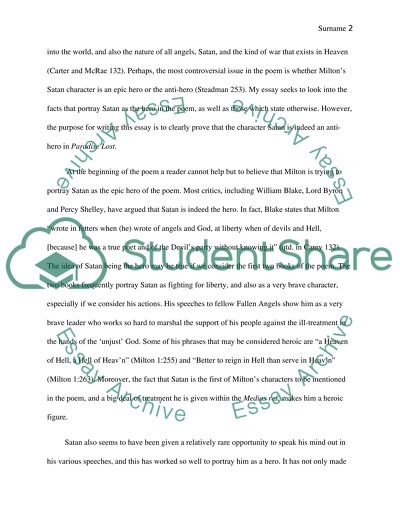Cite this document
(“Satan as an Antihero in John Milton's Paradise Lost Essay”, n.d.)
Retrieved from https://studentshare.org/literature/1439841-satan-as-an-antihero-in-john-milton-s-paradise
Retrieved from https://studentshare.org/literature/1439841-satan-as-an-antihero-in-john-milton-s-paradise
(Satan As an Antihero in John Milton'S Paradise Lost Essay)
https://studentshare.org/literature/1439841-satan-as-an-antihero-in-john-milton-s-paradise.
https://studentshare.org/literature/1439841-satan-as-an-antihero-in-john-milton-s-paradise.
“Satan As an Antihero in John Milton'S Paradise Lost Essay”, n.d. https://studentshare.org/literature/1439841-satan-as-an-antihero-in-john-milton-s-paradise.


